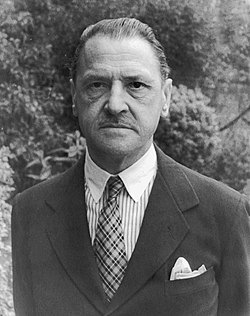W. Somerset Maugham Quote
Monsieur Foinet got up and made as if to go, but he changed his mind, and, stopping, put his hand on Philip's shoulder.But if you were going to ask me my advice, I should say: take your courage in both hands and try your luck at something else. It sounds very hard, but let me tell you this: I would give all I have in the world if someone had given me that advice when I was your age and I had taken it.Philip looked up at him with surprise. The master forced his lips into a smile, but his eyes remained grave and sad.It is cruel to discover one's mediocrity only when it's too late. It does not improve the temper.He gave a little laugh as he said the last words and quickly walked out of the room.
Monsieur Foinet got up and made as if to go, but he changed his mind, and, stopping, put his hand on Philip's shoulder.But if you were going to ask me my advice, I should say: take your courage in both hands and try your luck at something else. It sounds very hard, but let me tell you this: I would give all I have in the world if someone had given me that advice when I was your age and I had taken it.Philip looked up at him with surprise. The master forced his lips into a smile, but his eyes remained grave and sad.It is cruel to discover one's mediocrity only when it's too late. It does not improve the temper.He gave a little laugh as he said the last words and quickly walked out of the room.
Related Quotes
About W. Somerset Maugham
Maugham's novels after Liza of Lambeth include Of Human Bondage (1915), The Moon and Sixpence (1919), The Painted Veil (1925), Cakes and Ale (1930) and The Razor's Edge (1944). His short stories were published in collections such as The Casuarina Tree (1926) and The Mixture as Before (1940); many of them have been adapted for radio, cinema and television. His great popularity and prodigious sales provoked adverse reactions from highbrow critics, many of whom sought to belittle him as merely competent. More recent assessments generally rank Of Human Bondage – a book with a large autobiographical element – as a masterpiece, and his short stories are widely held in high critical regard. Maugham's plain prose style became known for its lucidity, but his reliance on clichés attracted adverse critical comment.
During the First World War Maugham worked for the British Secret Service, later drawing on his experiences for stories published in the 1920s. Although primarily homosexual, he attempted to conform to some extent with the norms of his day. After a three-year affair with Syrie Wellcome which produced their daughter, Liza, they married in 1917. The marriage lasted for twelve years, but before, during and after it, Maugham's principal partner was a younger man, Gerald Haxton. Together they made extended visits to Asia, the South Seas and other destinations; Maugham gathered material for his fiction wherever they went. They lived together in the French Riviera, where Maugham entertained lavishly. After Haxton's death in 1944, Alan Searle became Maugham's secretary-companion for the rest of the author's life. Maugham gave up writing novels shortly after the Second World War, and his last years were marred by senility. He died at the age of 91.
